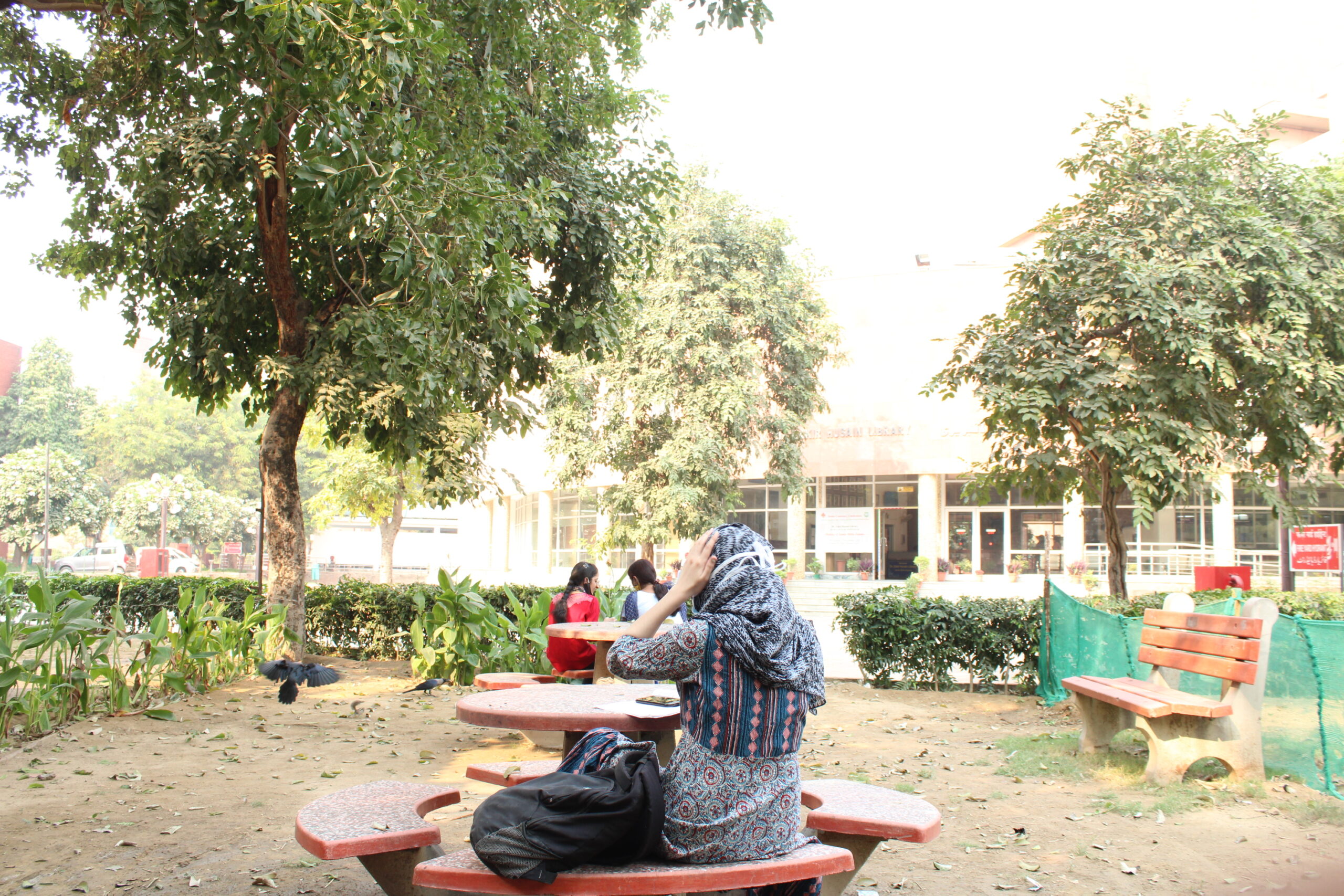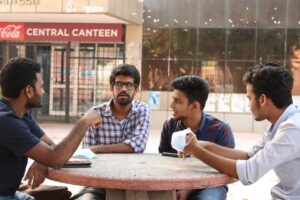Race, religion, caste & ethnicity: Barriers for outside students in Delhi

Not being a native of Delhi, having a different skin colour, a different accent or even belonging to a minority community or religion creates problems for students who come to Delhi (MIG Photos/Danish Mohamed)
About 55 pc of all students in government colleges in Delhi are from outside the national capital, according to a news website. While this figure keeps increasing every year, as more and more students migrate to the national capital looking for better education and employment opportunities, their acceptance in the mainstream life remains a question very often ignored.
“It was my first day in college and only the fifth day in Delhi when I heard a group of girls calling me kali billi (a black cat). I was taken aback and looked back at those girls. I saw them pointing at my face and laughing. I ran back to my hostel and kept thinking about the incident over and over again,” says Parvathi, a 23-year-old, final year psychology student of Delhi University.
Parvathi belongs to Telangana, a southern Indian state. She moved to New Delhi about three years ago for pursuing her studies. Parvathi says she faces a lot of discrimination on a day to day basis in her college, hostel and even at public places, because of her complexion, which is darker than that of an average North Indian.
During an audition for a dramatics group in college, one of Parvathi’s seniors tried to tell her the audience would not want to see an ‘unattractive’ face on stage and that she should try for something that doesn’t include being present on the stage.
Parvathi gets called racist slurs, dark, black and many other derogatory terms. “It used to affect me before but not anymore. I still feel bad when strangers look at me with disgust but mostly I ignore them. I didn’t get photographed for almost an year,” she explains.
Just like Parvathi, 26-year-old Abhinav Kumar had also come to the metro city looking for better education and a reputed college for pursuing his masters in Political Science. Kumar hails from Sitamarhi, a small town in Bihar.
“Being in a new city is scary for anyone, especially if one belongs to a rather small town of one of the most backward states in the country. I had no issues with being called a Bihari (a person from Bihar) because I am one! I started facing problems when one of my teachers called me one with disgust and anger,” he says.

Most outsiders have to face a lot of racial, ethnic & other forms of discrimination, along with the academic pressures (MIG Photos/Danish Mohamed)
Kumar adds “I could not answer a question in class and a very reputed teacher of my college said that Biharis come to Delhi and they learn to read and write but remain uncultured and ill-mannered, just like the state we belong to.”
The beautiful and lush green northeast states of Indian also account for a huge number of students who migrate to the capital for educational purposes. As the state’s history and identity remain almost absent from mainstream education and life, so do the people belonging to these states. A 24-year-old student from Williamnagar, Meghalaya, talks about her experience in New Delhi.
“I came to Delhi four years ago to pursue English Literature at Delhi University. The first few weeks were good and filled with excitement as I met new people and made new friends. Then, one day in a busy marketplace, two men called me Chinki (a racial slur) and started following me. I got extremely scared and ran back to my place. It was my first experience of a racial slur being hurled at me but unfortunately not the last,” she says.
She adds that in the past few months, the racial slurs have become more common. Since the onset of the Covid-19 pandemic in India, people have called her Chinese and Coronavirus. “I face this kind of treatment very often as I do not have an ‘ideal’ Indian face and look different. That’s why we try to live within our own community where we meet similar people and avoid expanding our circle of friends,” says the 24-year-old who didn’t want to be named.
Colleges, markets and other public places are not exclusive to discrimination of Indians within their country. Not being a native of Delhi, having a different skin colour, a different accent or even belonging to a minority community or religion creates problems for students who come to Delhi.
Mohamad Bilal belongs to Ghaziabad in Uttar Pradesh and is a communication student in a private college in Delhi. He started living as a paying guest in a Hindu household near his college. After two months, he was asked to vacate his room immediately and was not given any reason. Later, through a friend, he came to know that the landlady of the house started doubting what he ate and became suspicious of every food item he bought or cooked.
“I had no idea about what had happened suddenly. I was in college when my landlady called up and asked me to vacate the room I had rented. I was given absolutely no advance notice and had no other place to go. I was extremely worried and helpless,” he says.
“When I reached my place, she had already packed the only two bags I had brought with me and asked me to leave. Six months later, a friend who was then living at the same place, told me that the landlady had suspected me of eating beef and had asked me to leave,” Bilal says.
Bilal, Parvathi, Kumar and the student from Meghalaya are but only a few from the thousands of students who come to the country’s capital, also a hub of education, for higher studies and face discrimination in various forms at all possible places in city. While the city appears promising and full of opportunities from the outside, the ground reality is starkly different. Most outsiders, if not all, have to face a lot of racial, ethnic and other forms of discrimination, along with the academic pressures.
Hitesh Deswal, a psychologist in a private college in Delhi says that he counsels more than a hundred students each year, from new sessions, who come from different Indian states and face discrimination in their early days in Delhi. “Every year, I receive the highest number of cases during the first three months of every academic session and most of them turn out to be new students who are unable to cope up with the new lifestyle, cultural shock and mainly, face discrimination. Most of them feel better with time but every year, some return back home, unable to cope up,” says Deswal.
Deswal further explains that there is only a little that he can do being a counsellor in the college. Many students do not approach him, many get bullied and lose their confidence, many isolate themselves completely or return back home within a few days.
“Students have told me that even after complaining to the college authorities, helplines and in few cases, the police, has not helped them as none have taken them seriously. I personally have talked to several college authorities but unfortunately, not one of them seem bothered about it. Authorities assume that this is too small a problem to complain or take any action for. I don’t see any solution to this problem in near future. We can only expect people to be sensitive as the diversity in the capital increases and this generation grows up. I wish all students find a strong and broad-minded support group among their peers,” he adds.









